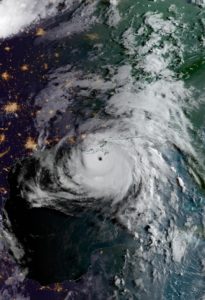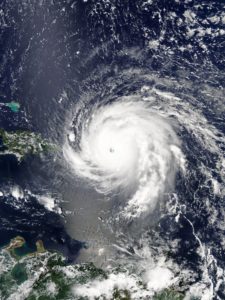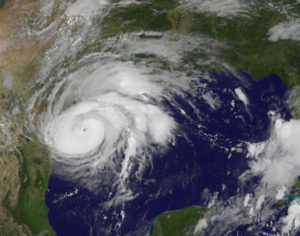Defense Base Act litigation often features a slew of experts, including vocational experts. The issue presented in this post is whether the 30-day notice period applicable to medical expert examinations also applies to vocational expert examination. I believe it does–both legally and logistically. What is a Vocational Examination? Briefly, a vocational examination involves a trained expert asking questions to an injured worker about their educational, employment, and medical background. Following the examination, the vocational expert must prepare a report and a labor market survey. The purpose of the survey is to identify “suitable alternative employment.” Different circuits have different requirements for what constitutes suitable alternative employment. Typically, suitable alternative employment must identify jobs available in the community that the worker is capable of performing given the worker’s age, background, and medical restrictions. The economic security offered by suitable alternative employment must be “long-term.” Newport News Shipbuilding and Dry Dock Co. v.Read more
National AWW Percent Increase for Longshore and DBA, Fiscal Year 2022
Each fiscal year, the Secretary of Labor must calculate a new National Average Weekly Wage for Longshore and Defense Base Act claims. See 33 U.S.C. 906(b)(3). The Secretary made those calculations for fiscal year 2022. The Fiscal Year 2022 Numbers: For the period between October 1, 2021, and September 30, 2022, the following values apply: National Average Weekly Wage: $863.49 Maximum Compensation Rate: $1,726.98 Minimum Compensation Rate: $431.75 Percent Increase: 5.77% (but there’s a catch) Percent Increase: What does all this mean? First, I want to address the percent increase. This entire percent increase does not apply to death or permanent total disability benefits. Although cost of living adjustments apply annually to those classification of benefits, no percent increase may exceed 5%. Section 10(f) of the Longshore Act, which also applies to the Defense Base Act, states: (f) Effective October 1 of each year, the compensation or death benefits payable for permanent total disabilityRead more
Hurricane Ida Updates – September 6, 2021
Hurricane Ida devastated Louisiana. Three days later, power and internet remain down for the vast majority of southeastern Louisiana. Thank you to all of the clients and colleagues who have reached out over the past few days. Today, Chief Administrative Law Judge Stephen Henley issued an Administrative Order that postpones and tolls pending deadlines. Specifically, the order states: All proceedings before the Office of Administrative Law Judges (“OALJ”), including formal hearings, oral arguments, mediations, and pre-hearing conferences, scheduled to take place in or within 150 miles of New Orleans, Louisiana–or involving any party, attorney, or law firm located in or within 150 miles of New Orleans, Louisiana–are POSTPONED until further notice. All associated hearing-related deadlines, such as pre-hearing exchanges, discovery deadlines, post-hearing briefs and similar matters, are TOLLED until subsequent order. I am thankful for the order. I am relying on generator power and a hotspot to provide this update.Read more
Ninth Circuit: Establishing Entitlement to Attorney Fees is Compensable
The Ninth Circuit issued a new attorney fee decision that is applicable to Longshore and Defense Base Act claims. In Vortex Marine Construction, the court was asked whether it was appropriate to award a claimant’s attorney fees, paid by the Employer/Carrier, for time spent engaging in fee litigation. The published opinion that followed was succinct: We agree with he Appellate Commissioner’s determination that [the Supreme Court’s Baker Botts decision] does not prevent an award of attorneys’ fees for the fee litigation here under the Longshore and Harbor Workers’ Compensation Act (“LHWCA”), 33 U.S.C. 928(a). In Baker Botts, the court held that the text of § 330(a)(1) of the Bankruptcy Code does not shift the costs of adversarial litigation from one side to the other, and it does not displace the American Rule with respect to fee-defense litigation. See id. at 2165–67; see also Micha v. Sun Life Assurance of Canada, Inc., 874 F.3dRead more
Hurricane Irma Stalls Longshore and DBA Deadlines
The Office of Administrative Law Judges issued a new Administrative Order on September 11, 2017. The Order states: Case No. 2017-MIS-00007 In the Matter of: POSTPONEMENT OF CERTAIN PROCEEDINGS BEFORE THE OFFICE OF ADMINISTRATIVE LAW JUDGES, U.S. DEPARTMENT OF LABOR, SCHEDULED FOR THE MONTHS OF SEPTEMBER AND OCTOBER, 2017 ADMINISTRATIVE ORDER Hurricane Irma has forced the extended evacuation of much of the State of Florida. In consideration of the extraordinary circumstances occasioned by this natural disaster, IT IS ORDERED that: All OALJ proceedings, including formal hearings, oral arguments, mediations, and pre-hearing conferences, scheduled to take place within the State of Florida up to and including October 6, 2017 are POSTPONED until further notice. All associated hearing related deadlines, such as pre-hearing exchanges, discovery deadlines, post-hearing briefs and similar matters, are TOLLED until subsequent order. All OALJ proceedings, including formal hearings, oral arguments, mediations, and pre-hearing conferences, involving any attorney orRead more
Great New Article About Longshore/DBA Medical Benefits
There is a great article from Yelena Zaslavskaya on the Office of Administrative Law Judges’ website about medical benefits. The article, Medical Benefits Under Section 7 of the LHWCA: Select Issues, address some key topics which come up often in the Longshore and Defense Base Act arenas: Authority of Administrative Law Judges versus the District Director Types of medical expenses covered by the Longshore Act Employer-provided housing and related expenses The reasonable cost of medical expenses The reasonable distance to travel for medical treatment Coverage/reimbursement for past medical expenses Click here to go straight to the article. I highly recommend checking it out.
Hurricane Harvey’s Effect on the OALJ and DOL
Hello all: Our Longshore and Defense Base Act community has a large presence in Houston and surrounding areas. The devastation and flooding caused by Hurricane Harvey has taken its toll on both litigants and colleagues. In consideration of the unprecedented flooding, the Office of Administrative Law Judge has rightfully issued the following Administrative Order: POSTPONEMENT OF CERTAIN PROCEEDINGS BEFORE THE OFFICE OF ADMINISTRATIVE LAW JUDGES, U.S. DEPARTMENTOF LABOR, SCHEDULED FOR THE MONTHS OF SEPTEMBERAND OCTOBER, 2017 Hurricane Harvey has forced the extended evacuation of the Houston, Texas area and surrounding environs. In consideration of the extraordinary circumstances occasioned by this natural disaster, IT IS ORDERED that: All OALJ proceedings, including formal hearings, oral arguments, mediations, and pre-hearing conferences, scheduled to take place in and within 150 miles of Houston, Texas during the months of September and October 2017 are POSTPONED until further notice. All associated hearing-related deadlines, such as pre-hearingRead more
Should U.S. Psychologists Use the DSM to Diagnose Psychological Injuries?
Recently, I encountered a couple of defense psychological experts which have openly testified that they do not use the DSM-5 when diagnosing and evaluating claimants. The question is whether these medical professionals, both of whom are based in the United States, should be given less weight because they do not use this basic diagnostic manual. Is it somehow wrong for a doctor to refuse to use the DSM-5? What is the DSM-5? The full name for the DSM-5 is the Diagnostic and Statistical Manual of Mental Disorders. The “5” refers to the Fifth Edition of the manual, which the American Psychiatric Association published a few years ago. Until recently, every single mental health professional I have deposed has confirmed their use of the DSM-5, even in defense examinations. It was a no-brainer. Mental health professionals use the DSM-5. Period. New Doctors Testifying That They Do Not Use the DSM-5: TheRead more
Oral Argument in Jetnil, a Zone of Special Danger Case
Today the Ninth Circuit Court of Appeals heard oral arguments in Chugach Management Services v. Jetnil. I have previously discussed the zone of special danger aspect of Jetnil, as well as the briefs submitted by the parties. Below is a video of today’s argument. It is worth watching if you are interested in this area of the law. The carrier’s attorney argues first, followed by the claimant’s attorney, and then the government’s attorney. I don’t think the importance of the case can be overstated. Do we want to exclude an entire class of workers (local nationals) from the applicability of the zone of special danger? What if a local national (typically just a person from the country in which they work) is employed on the other side of the country and not near their home? I’ll have more of an analysis after I get to digest the argument a littleRead more
Maybe It’s Time To Contact Congress About Your Defense Base Act Claim
Back in 2008, the Defense Base Act industry found itself in the cross-hairs of Congressional scrutiny. Insurance companies were denying legitimate claims. Some of the claims that were paid were done so after a lengthy delay. Some injuries, like PTSD, were viewed with skepticism. All the while, insurance companies were making huge profits off of the war. Like many industries that come under fire, the DBA industry tried to correct itself. The Department of Labor developed a tracking system to determine when claims were reported, and when claims were paid. Anyone can log onto the DOL’s website and view the DBA industry report cards. The report cards do not, however, provide the full story, especially with PTSD. For a while, DBA administration issues became fewer and farther between. Many claims were paid. It looked like the industry would normalize. Unfortunately, the honeymoon was short-lived. In my opinion, we are backRead more










